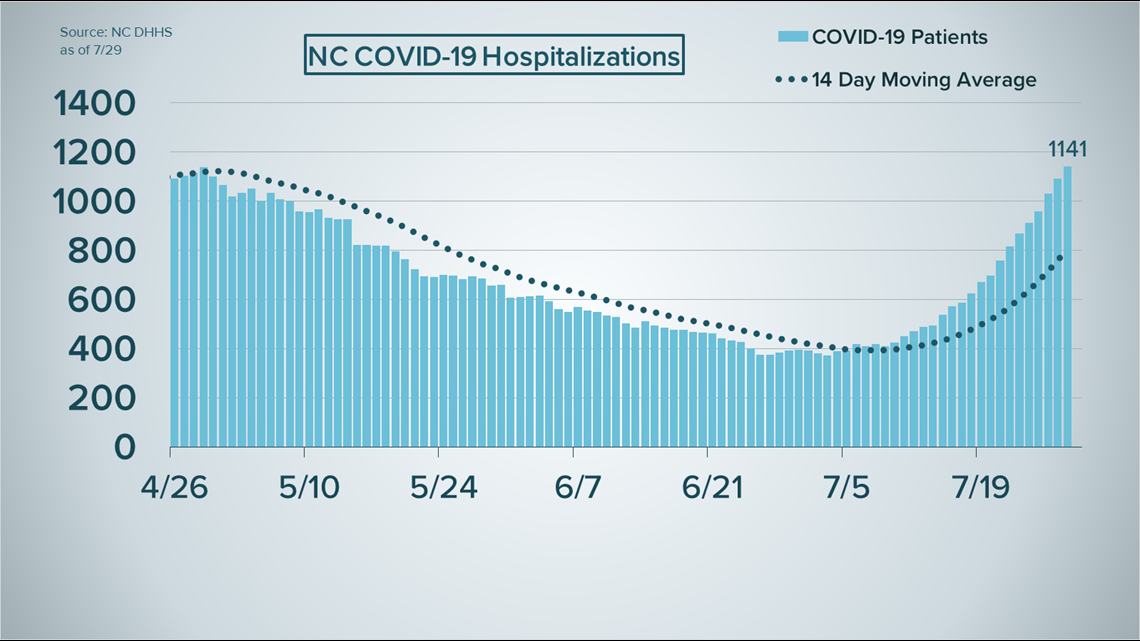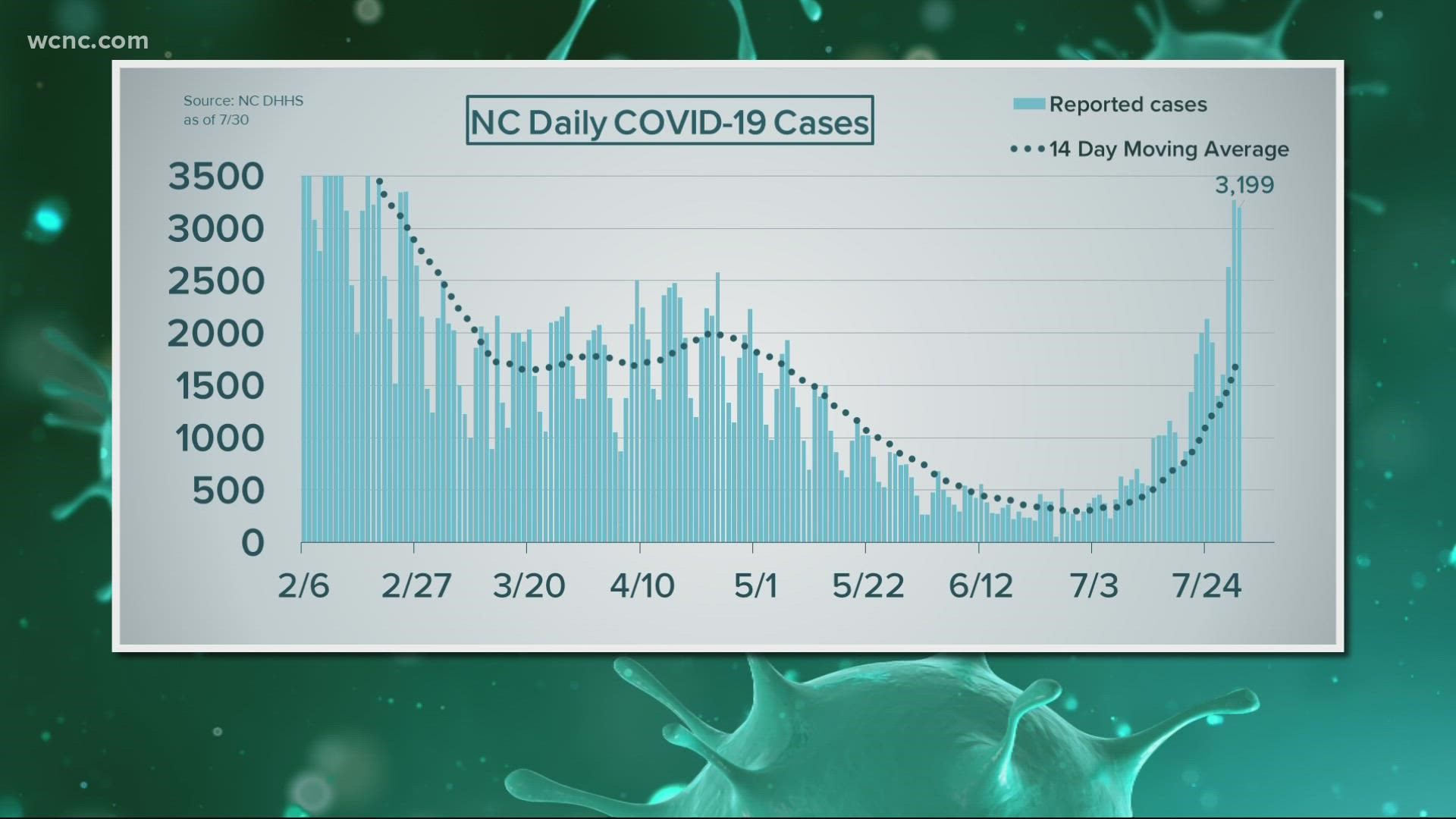CHARLOTTE, N.C. — After months of declining COVID-19 metrics, North Carolina's cases and hospitalizations are rising again and, according to state health officials, they are rising at their fastest rate of the pandemic.
Thursday, North Carolina's Department of Health and Human Services reported more than 3,200 new cases in a single-day, the highest count since late February. Exactly a month before, NCDHHS was reporting daily case counts below 300.
North Carolina's COVID-19 patient count is approaching 1,200, roughly triple what it was at its most recent low point at the beginning of the month.
At the heart of the rapid rise, doctors say, is the delta COVID-19 variant. Not only is it more transmissible, it also seems to have a shorter incubation period.
"One of the things we're seeing with the delta variant: that timeline is condensed a little bit. You are, in fact, more infectious, more quickly with this," Dr. Cameron Wolfe, an infectious disease specialist with Duke Health, said.
Wolfe said that fact is playing out in the faster metrics surges.


During Gov. Roy Cooper's COVID-19 briefing Thursday, when the governor announced strong recommendations that even fully vaccinated people mask up in public, indoor settings, NCDHHS Secretary Mandy Cohen noted just how contagious the delta variant is.
Cohen said the average person, sick with the original strain of the virus, usually infects two to three others, but someone with delta can spread the virus to six people.
The "unique" behavior of delta is what prompted the Centers for Disease Control and Prevention to make its new masking guidance for fully vaccinated people earlier this week.
CDC director Dr. Rochelle Walensky said mounting research shows some fully vaccinated people might be able to transmit delta to others, which appears to be less of a risk with the original strain and other variants of the virus.
The CDC estimates eight in 10 new cases are from the delta variant, nationwide, and in North Carolina, delta is the most common form of COVID-19, making up at least 40% of new cases.

